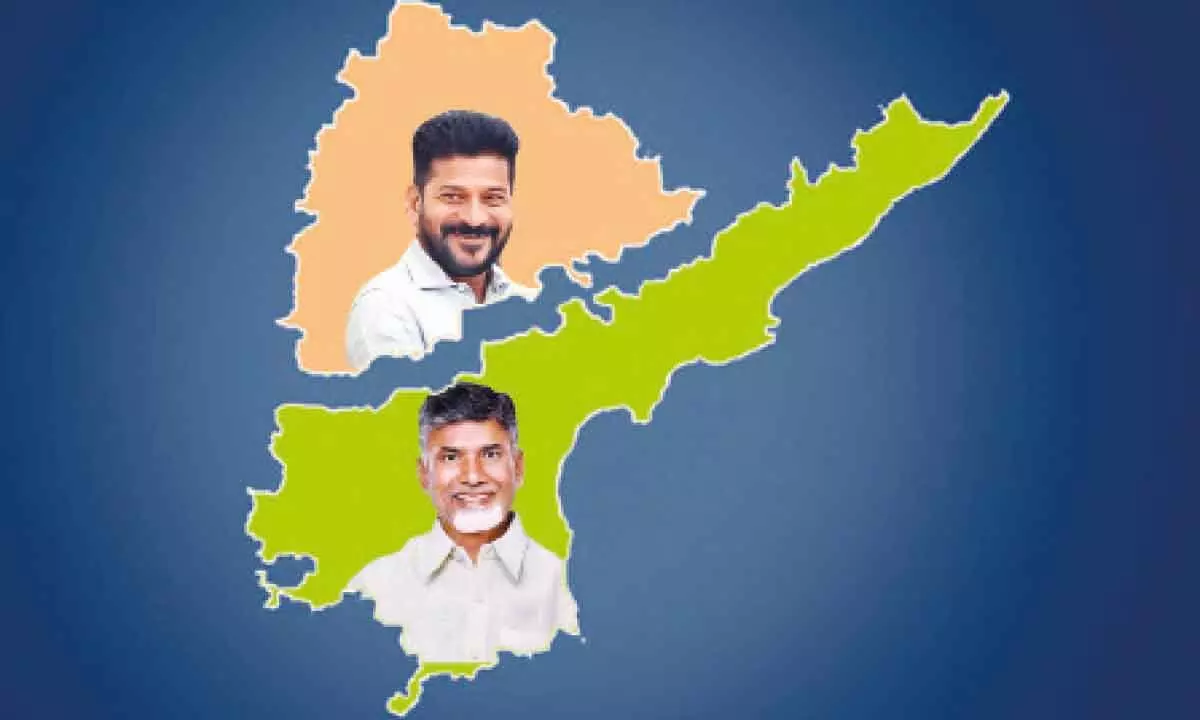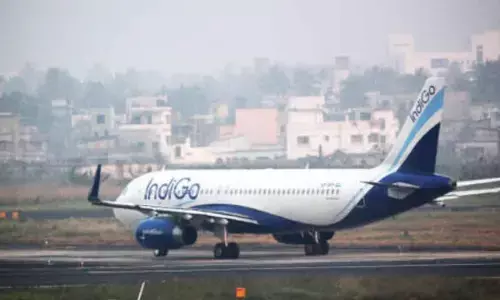A deep connect despite divergence

A recent appeal to the two Chief Ministers of Telugu States before their conclave had emphasised the need for them to remember that the people of the two states share not only a common language, but also a common legacy, of a rich culture and a way of life. Further, it recalled the notable achievements of Telugu speaking people not only in other parts of the country, but in many parts of the world, and ended by expressing the hope that the exchange would end in a mutually satisfactory, and acceptable manner
A meeting between began on 6 July between the Chief Ministers of the two Telugu speaking states, Chandrababu Naidu and Revanth Reddy, for settling certain issues relating to sharing of residual assets and liabilities that have arisen in the wake of the bifurcation of the erstwhile state of Andhra Pradesh into Andhra Pradesh and Telangana. Against that backdrop, Mulugu Rajeswara Rao, a writer and a journalist, has addressed an open letter to both the Chief Ministers. The letter is in the nature of an appeal to them to include in the agenda for the discussions a critical appraisal of the current status of the Telugu language. It also exhorts the leaders to bring to bear on the têtê à têtê, the benefit of their personal equation, political acumen, and dedication to the welfare of the people, especially when matters relating to distribution of assets and liabilities come up.
The letter goes on to emphasise the need for them to remember that the people of the two states share not only a common language, but also a common legacy, of a rich culture and a way of life. Further, it recalls the notable achievements of Telugu speaking people not only in other parts of the country, but in many parts of the world, and ends by expressing the hope that the exchange will end in a mutually satisfactory, and acceptable, manner.
Following a feeling that the reorganisation of the states of India, on the basis of language, would improve administration, and help replace the caste and religion-based identities with less controversial linguistic identities, the Government of India, in December 1953, constituted the States Reorganisation Commission (SRC) to recommend the reorganisation of state boundaries. The fact that only in October that year, the Government of India had to concede a demand from the Telugu speaking people residing in the then Madras Presidency, for a separate state, was perhaps, also another reason behind that decision.
Around that time, the Communist Party of India voiced a demand to merge all Telugu-speaking areas into one state. The SRC noted that the creation of a separate state for the Telugu speaking people was also the ardent wish of numerous eminent individuals and public bodies. Accordingly, in 1956, the Andhra State was merged with the Telugu speaking portions of Hyderabad State, and Andhra Pradesh State came into being.
That consummation so devoutly to be wished for, to plagiarise the words of Shakespeare, however, did not last long. Barely five years had passed before continued unrest, marked by several violent agitations, shook both the regions of the new composite state. Finally, in 2014, the Government of India piloted the passage by Parliament of the Andhra Pradesh Reorganisation Act, bringing into being the Telangana and Andhra Pradesh States.
Once again, the Telugus had brilliantly displayed their famous adeptness at snatching defeat from the jaws of victory. At a time when the Jews in Israel were fighting fiercely. to cling on to the ‘Promised Land’, against consistent and determined opposition from most countries of the world, here were the Telugus who, having been brought together, for the very first time, in their history of over 5,000 years, were unable to rest till the dispensation was reversed, and after several violent uprisings!
No wonder Girisam, the principal character of the legendary, and controversial, play ‘Kanyasulkam,’ authored by the revolutionary Telugu author Gurajada Appa Rao, described the Telugus as ‘utterly useless people’. Granted, that may have been an exaggerated expression of the exasperation the author felt, about the attitude of the Telugus, but, unfortunately, it was not entirely without substance.
It is worth noting, at this point, that after Hindi and Bengali, Telugu is the most common language in India. It was once described by Sri Krishnadevaraya, the Emperor of the great Vijayanagar Empire, as the best in the country. The king, no doubt, may have used that description as a ploy to overcome possible resentment by those speaking Kannada, the official language of the kingdom, at his using Telugu for the magnum opus he was about to author, ‘Amukta Malyada’. Still, he had made his point. Likewise, and around the same time, Niccolo de’ Conti, the Italian merchant and explorer, while visiting the Vijayanagar Empire, described Telugu as the ‘Italian of the East’.
The two states share legacies which go far beyond language. They have a remarkably complementary relationship and, when viewed together, present, much like the pieces of a jigsaw puzzle, a formidable and imposing picture, of a strong and vibrant socio-economic and geopolitical entity.
For example, if Kuchipudi has brought international fame and recognition to Andhra Pradesh State, the Bonalu festival has done the same for Telangana. Likewise, if Hyderabad is the IT/BT hub, and one of the jewels in the crown of the country, the seaports that dot the coastline of Andhra Pradesh have the potential to add immeasurable value to the produce of Telangana state. Also, the mellifluous and continuous flow of the Telugu language, as one follows its charming variations, travelling from Adilabad to Nellore to Srikakulam, can never be marred by an artificial geographical division. After all, if the memorable Andhra Triumvirate of Nannaya, Thikkana and Yerrapragada from Andhra Pradesh translated the immortal epic, Mahabharata, into Telugu, great Telangana authors such as Bammera Pothana and Bhakta Ramdasu made no less significant contribution to the treasure of Telugu literature.
Coming to the arena of politics and administration, if President Neelam Sanjeev Reddy was the contribution of Andhra Pradesh to the nation, so was that of Prime Minister P V Narsimha Rao from the Telangana side. And if a Sri Sri penned rousing revolutionary songs from the Andhra Pradesh side, a Gaddar from Telangana not only composed, but also sang, equally fiery ones, perhaps with greater impact, viewed against the exploitative feudal culture prevalent in parts of rural Telengana.
And if M Narasimham and Y Venugopal Reddy, both of whom served not only as Governors of the Reserve Bank of India, but also in the World Bank and the International Monetary Fund and other international financial institutions, were the contribution of Andhra Pradesh to the world economy, Satya Nadella, an alumnus of the Hyderabad Public School, is an equally valuable gift to the international community, from the Telangana state.
The list goes on. If the contribution of Hyderabad city to the world of cricket was in the shape of the great Ghulam Ahmed, the unforgettable and debonair Jaisimha, and the dashing off spinner Shivlal Yadav, Chamundeshwarinath, from Andhra Pradesh, it is no less than the person who coached Virat Kohli, arguably one of the best captains of Indian team the country has produced!! On the Telangana side, Osmania University is the third oldest university in the Southern part of India and the first to be established in the kingdom of Hyderabad, Andhra University, established the a few years later, makes an equal claim to fame. Both have produced alumni such as Nobel Laureate Dr C R Rao and distinguished economist and civil servant B P R Vithal, of whom any university in the world can be proud.
Before we end this lively discussion, a sniffet.
Every language varies in pronunciation, diction, accent, and even lexicon, from place to place. Telugu is no different and, in 1967, a group named ‘Saaz Aur Awaaz,’ to which I belonged, staged a variety entertainment programme, in which a humorous skit called ‘The Sound of Telugu’, illustrated the point rather dramatically. It portrayed, in a humorous fashion, the way in which the Telugu language differed, in form and content, as one traveled from Srikakulam to Nellore to Adilabad in the then composite Andhra Pradesh State.
The variations, in a language can, on occasion, be so sharp as to make it difficult for people to understand each other, although they are speaking the same tongue. A difficulty highlighted, with the biting sarcasm so characteristic of him, by the inimitable Oscar Wilde who, in his ‘Centerville Ghost’, wrote, “We have everything in common with America nowadays except, of course, language.”
(The writer was formerly Chief Secretary, Government of Andhra Pradesh)










